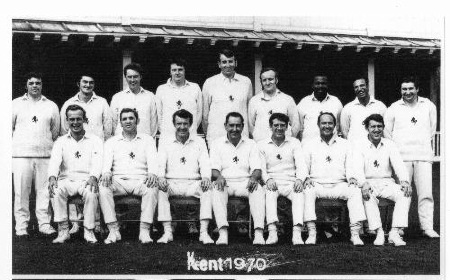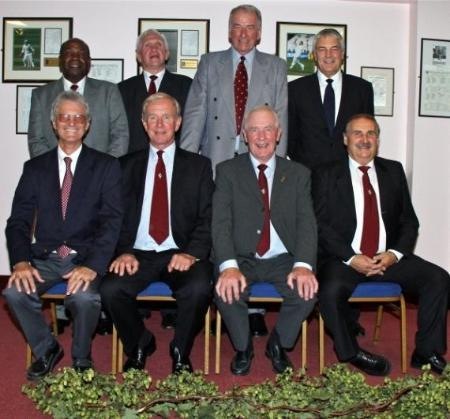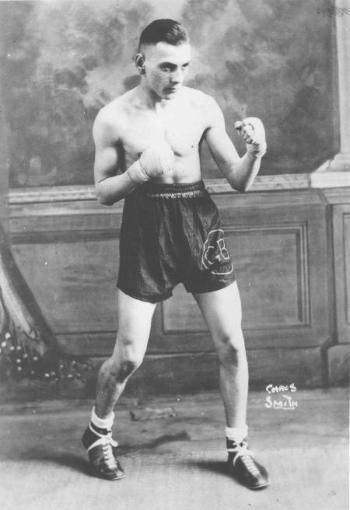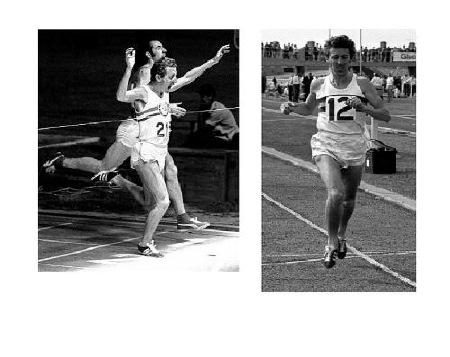



 |
 |
 |
 |
 |
 |
 |
 |
 |
 |
 |
 |
 |
 |
 |
 |
 |
 |
 |
 |
 |
 |
 |
 |
 |
 |
 |
 |
 |
 |
 |
 |
 |


Alan Brown. Born
Rainworth Nottinghamshire October 17th 1935.
Alan Brown played professional
cricket with Kent County Cricket Club and represented England and the MCC when
the team toured India and Pakistan in 1961-62. As a right arm fast-medium bowler
he was the main strike force for a decade with Kent CCC as well as being an aggressive
tail end batsman.

Alan Brown
front row
2nd from the left
The special significance of the 1970 picture is that Kent
became County Champions that season for the first time since 1913. Alan played
13 County Championship matches that season, his last, and took 34 wickets. He first
played for the County in 1957 and in 237 first class matches he took 707 wickets,
also 4 wickets in 5 balls during a Kent v Notts match in1959. On 25 occasions Alan Brown
took 5 or more wickets in an innings and four times he took 10 or more in one
match.
In his earlier years he regularly turned out for Blidworth
Welfare cricket and football teams and is fondly remembered by many today.
During the 1961-62 MCC tour of India and Pakistan, Alan’s team
mates included some very well known names such as Colin Cowdrey, Alan Knott,
Derek Underwood and Mike Denness.

Back Row
John Shephard
Alan Brown
Norman Graham
Graham Johnson
Front Row
Alan Knott
Derek Underwood
Mike Denness
Alan Ealham
40th Anniversary Dinner
Kent CCC
September 10th 2010
George Butler. The Blidworth Lad who never thought of defeat.
 At 14 years
old George Butler, as did, all but a very few village boys of his age began
working at Blidworth Colliery, but during the 1930’s and 1940’s one of the most
popular boxers to appear on Boxing Tournaments up and down the Country was
George Butler of Blidworth. George was taught and encouraged as a lad by his
father. At the age of 15, his father took him to train at the Brown Cow Inn in
Mansfield. At that time this was the
professional gymnasium of Charlie Coates, the well known Sutton in Ashfield
Boxing Manager and Promoter.
After one
year Charlie Coates applied for and was granted a licence for George to fight
as a professional. He began his career as a flyweight and was outpointed by the
more experienced boxer Young Wheeldon of Alfreton over 6 rounds at Sutton Baths
and next lost on points in Sunderland against Dave Shades. His next 3 contests
resulted in one win, one draw and one lost.
George soon
started winning regularly and after a few more bouts he moved up to Bantamweight
class. After more wins George was growing quickly and at the age of 17, only 18
months after he began his boxing career he moved into the featherweight
division and was adjudged good enough to top the bill.
In those
days it was not unusual for him to fight twice in one week and indeed on one
occasion George fought 4 times in seven days. It is not known how he was
allowed days off work as a miner at Blidworth Colliery in order to train and
fight as often as he did, but without doubt his success as a boxer was good for
moral in the village and made George very popular with workmates and Colliery
Management alike.
George began
to turn in scintillating boxing performances, and went on to learn a lot and
gain confidence. He recorded more than 20 consecutive featherweight wins
against good opposition.
In 2 trips
to Guernsey George beat both featherweight and flyweight champions. He went to Belfast
and lost a disputed points decision against Freddie Warnock the Irish Champion,
later he drew against Billy Charlton, Northern Area Champion over 10 rounds.
In 1938
George was contracted to fight in Germany but with war clouds looming he was
wisely advised not to go.
Professional
boxing in those day was a far cry from what it is today, for George received anything
from £2 to £2.10s for a 10 round bout and as much as £5 for a 12 round bout,
and he had to travel as far away as Great Yarmouth returning to Blidworth at
5am and being at work as a miner by 6.30am.
He had no
regrets at being a boxer and thought that the present day boxers showed the
lack of experience that he gained from appearing in small halls and boxing
booths that were so popular during his boxing career. George remained a very
active member of the Nottinghamshire and Derbyshire Ex-Boxers Association.
At 14 years
old George Butler, as did, all but a very few village boys of his age began
working at Blidworth Colliery, but during the 1930’s and 1940’s one of the most
popular boxers to appear on Boxing Tournaments up and down the Country was
George Butler of Blidworth. George was taught and encouraged as a lad by his
father. At the age of 15, his father took him to train at the Brown Cow Inn in
Mansfield. At that time this was the
professional gymnasium of Charlie Coates, the well known Sutton in Ashfield
Boxing Manager and Promoter.
After one
year Charlie Coates applied for and was granted a licence for George to fight
as a professional. He began his career as a flyweight and was outpointed by the
more experienced boxer Young Wheeldon of Alfreton over 6 rounds at Sutton Baths
and next lost on points in Sunderland against Dave Shades. His next 3 contests
resulted in one win, one draw and one lost.
George soon
started winning regularly and after a few more bouts he moved up to Bantamweight
class. After more wins George was growing quickly and at the age of 17, only 18
months after he began his boxing career he moved into the featherweight
division and was adjudged good enough to top the bill.
In those
days it was not unusual for him to fight twice in one week and indeed on one
occasion George fought 4 times in seven days. It is not known how he was
allowed days off work as a miner at Blidworth Colliery in order to train and
fight as often as he did, but without doubt his success as a boxer was good for
moral in the village and made George very popular with workmates and Colliery
Management alike.
George began
to turn in scintillating boxing performances, and went on to learn a lot and
gain confidence. He recorded more than 20 consecutive featherweight wins
against good opposition.
In 2 trips
to Guernsey George beat both featherweight and flyweight champions. He went to Belfast
and lost a disputed points decision against Freddie Warnock the Irish Champion,
later he drew against Billy Charlton, Northern Area Champion over 10 rounds.
In 1938
George was contracted to fight in Germany but with war clouds looming he was
wisely advised not to go.
Professional
boxing in those day was a far cry from what it is today, for George received anything
from £2 to £2.10s for a 10 round bout and as much as £5 for a 12 round bout,
and he had to travel as far away as Great Yarmouth returning to Blidworth at
5am and being at work as a miner by 6.30am.
He had no
regrets at being a boxer and thought that the present day boxers showed the
lack of experience that he gained from appearing in small halls and boxing
booths that were so popular during his boxing career. George remained a very
active member of the Nottinghamshire and Derbyshire Ex-Boxers Association.

 John Whetton
was born on the 6th September 1941 in Mansfield Nottinghamshire.
At the age
of 12 John attended Brunts Grammar School in Mansfield and joined Sutton in Ashfield
Harriers. It was during the next few years that John began to show his
potential as a world class athlete.
At the age
of 17 John met Bill Coyne from London at a coaching weekend. Bill began to
advise John on his technique, initially by post, but later Bill put John
through some seriously tough training sessions in Regents park in London.
In 1960 John
gained a place at Manchester University where he met Ron Hill who was 3 years
older than John and was beginning his Ph.D in Textile Chemistry.
They trained
together 2 or 3 times a week at the University track and at the playing field
at Fallow Field where Ron lived.
After his
time at Manchester University John went to Loughborough for one year where he
met coach Geoff Gowan who continued to train John and prepared him for the
Olympic Games in Tokyo in 1964.
John was one
of 3 British athletes that year who competed in the 1500 metres, the other 2
being William McKim and John’s fellow Sutton in Ashfield Harrier club mate Alan
Simpson.
Alan Simpson
and John Whetton qualified through to the final in Tokyo, John’s time being
3:44.2. In the final John achieved a personal best of 3:42.4.
John is best
noted for winning gold in the 1500 metre event at the 1969 European Athletics
Championships and for reaching the 1500 metre final in both the 1964 and 1968
Summer Olympics.
In 1966 at
the European indoor games at Dortmund John took first place and won the gold
medal by beating Oleg Rayko by 3 seconds and went on to retain the European indoor
title for a further two years.
In 1968 John
represented Great Britain in the Olympic games and finished in 5th place
in the final. At the Indoor Championships in Madrid John won the gold medal by
finishing in first place.
In 1969 at the European Championships John won
the 1500 metres in Athens, beating Ireland’s Francis Murphy to take the gold
medal.
John Whetton
was born on the 6th September 1941 in Mansfield Nottinghamshire.
At the age
of 12 John attended Brunts Grammar School in Mansfield and joined Sutton in Ashfield
Harriers. It was during the next few years that John began to show his
potential as a world class athlete.
At the age
of 17 John met Bill Coyne from London at a coaching weekend. Bill began to
advise John on his technique, initially by post, but later Bill put John
through some seriously tough training sessions in Regents park in London.
In 1960 John
gained a place at Manchester University where he met Ron Hill who was 3 years
older than John and was beginning his Ph.D in Textile Chemistry.
They trained
together 2 or 3 times a week at the University track and at the playing field
at Fallow Field where Ron lived.
After his
time at Manchester University John went to Loughborough for one year where he
met coach Geoff Gowan who continued to train John and prepared him for the
Olympic Games in Tokyo in 1964.
John was one
of 3 British athletes that year who competed in the 1500 metres, the other 2
being William McKim and John’s fellow Sutton in Ashfield Harrier club mate Alan
Simpson.
Alan Simpson
and John Whetton qualified through to the final in Tokyo, John’s time being
3:44.2. In the final John achieved a personal best of 3:42.4.
John is best
noted for winning gold in the 1500 metre event at the 1969 European Athletics
Championships and for reaching the 1500 metre final in both the 1964 and 1968
Summer Olympics.
In 1966 at
the European indoor games at Dortmund John took first place and won the gold
medal by beating Oleg Rayko by 3 seconds and went on to retain the European indoor
title for a further two years.
In 1968 John
represented Great Britain in the Olympic games and finished in 5th place
in the final. At the Indoor Championships in Madrid John won the gold medal by
finishing in first place.
In 1969 at the European Championships John won
the 1500 metres in Athens, beating Ireland’s Francis Murphy to take the gold
medal.
John has lived in Ravenshead for many years now and is certainly a worthy Local sporting legend.









